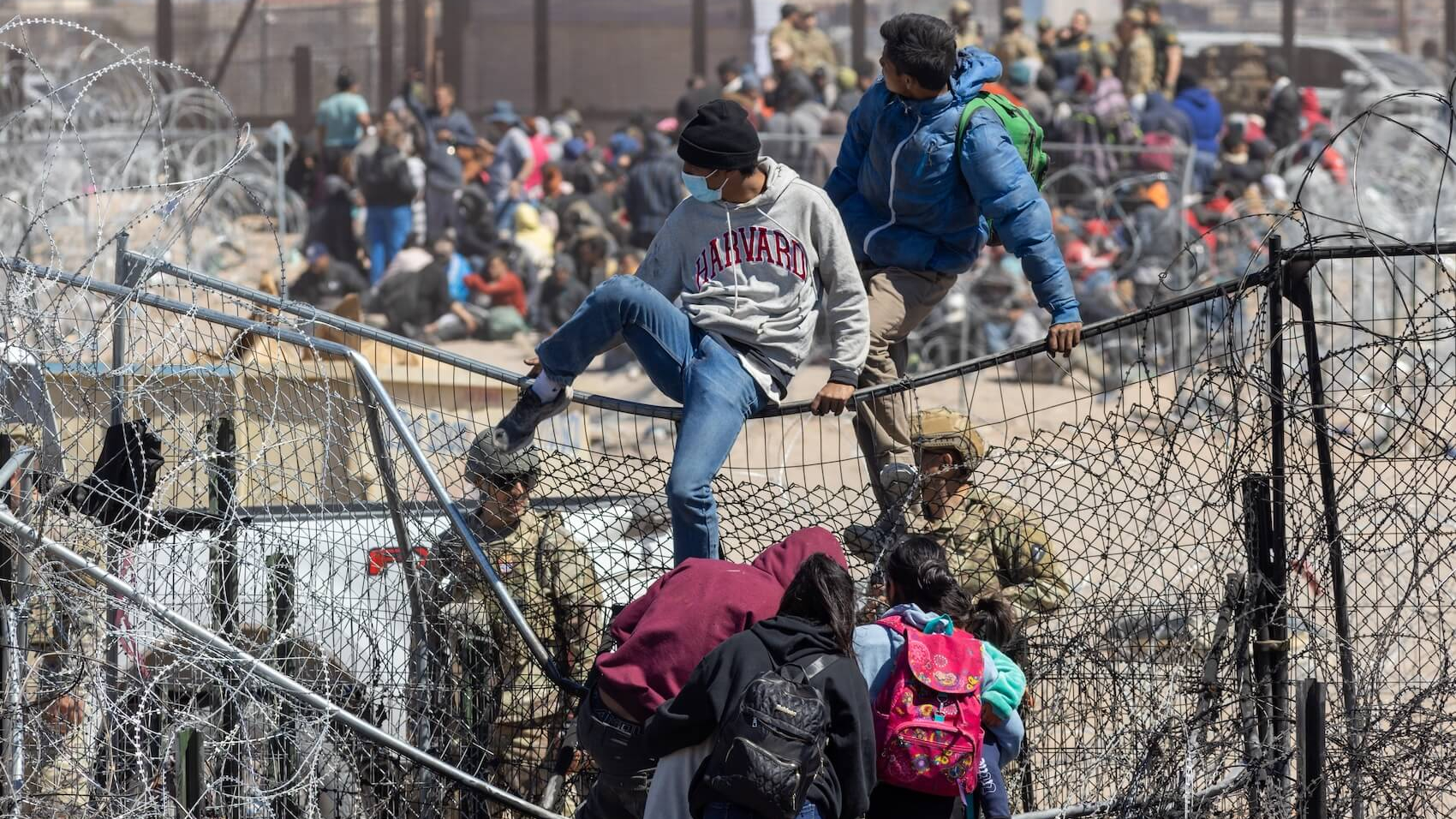Nomads and migrants have enriched and civilized numerous nations across the world. American society, over centuries, was built by the migration of various European groups and Africans. The United States has flourished as a nation of immigrants, where talent from across the globe has fueled innovation, economic growth, and cultural richness. From Silicon Valley’s tech giants to groundbreaking medical research, from global cuisines to artistic revolutions, immigrants have been the driving force behind America’s global reach. Yet, President Donald Trump’s aggressive anti-immigration stance threatens to dismantle America’s greatest asset—its diversity.
University scholars argue that by restricting immigration, the U.S. is not just closing its doors to potential talent—it is shutting itself off from the very engine that powered its success. A country built by immigrants cannot afford to betray its legacy. Nations that embrace migration thrive, while those that resist it stagnate. Over the past 300 years, the U.S. has evolved as a country where immigrants from diverse continents contribute to its rich cultural fabric and dynamic economy. Restricting immigration not only undermines America’s legacy as a land of opportunity but also stifles the influx of talent, ideas, and entrepreneurial spirit that have long fueled its progress.
Migration has historically played a crucial role in shaping civilizations, economies, and cultures. The establishment of Israel in 1948 provided a homeland for Jews fleeing persecution, particularly after the Holocaust. Their migration contributed to Israel’s rapid economic, scientific, and technological advancements. Similarly, the Punjabi and Sindhi communities, displaced after the 1947 Partition, helped rebuild economies in India by excelling in trade, industry, and entrepreneurship, especially in cities like Delhi and Mumbai. The Marwaris from Rajasthan migrated across India, becoming successful traders and industrialists, significantly contributing to India’s economic development. For centuries, groups from Central Asia, including the Mughals and other nomadic tribes, brought new cultures, technologies, and governance systems to India and other regions, shaping history through trade and conquests.
Political commentator Prof. Paras Nath Choudhary states, “Migration is woven into the very fabric of human history. From our earliest ancestors dispersing across continents to modern-day groups seeking new opportunities, the act of moving from one place to another is not merely a choice—it’s a fundamental characteristic ingrained in our DNA. Migration has played a crucial role in shaping civilizations, cultures, and economies, often lifting individuals and communities from stagnation and despair to prosperity and progress.”
When we consider the historical context of migration, we see a pattern of success following those who have embraced the journey away from their homeland. Migration liberates people from the confines of their familiar environments—be it limited resources, stagnant social dynamics, or oppressive regimes. This liberation can be likened to overcoming the “frog in the well” syndrome, where individuals are content to live within their narrow perceptions. Those who venture outside their wells, who embrace the vastness of diverse experiences and cultures, become enriched participants in a global society.
Renowned economist John Kenneth Galbraith emphasized migration as a powerful tool for overcoming human misery. By seeking new avenues for growth and opportunity, migrants often bring their skills, cultural perspectives, and resilience to their new homes. Social economists like Ajay Jha and T.P. Srivastav point out that the positive impacts of migration extend beyond personal and family enrichment. Economically, migrant communities have consistently demonstrated their ability to contribute to the growth of their host nations while simultaneously aiding their countries of origin.
Migrants are often instrumental in driving innovation, filling labor gaps, and stimulating economic activity. For example, many migrants take on essential jobs that other local populations may overlook, ensuring the smooth functioning of industries, from agriculture to technology.
Socialist thinker Ram Kishor adds, “Cities that embrace migration often become vibrant centers of cultural exchange and creativity, showcasing the strengths of diversity. This, in turn, fosters understanding and builds bridges between different communities, paving the way for a more harmonious society.”
Migration is not just a historical movement; it is a crucial driver of human progress. Social activist and traveller Mukta remarks, “As we navigate a world increasingly interconnected by migration, let us celebrate and defend it as a pathway to prosperity, resilience, and cultural enrichment.”
In the long term, we fear Trump’s policies may cost America dearly, though in the short run, the anti immigrant stance may appease a section of vocal Americans whose penchant for apartheid is known.





